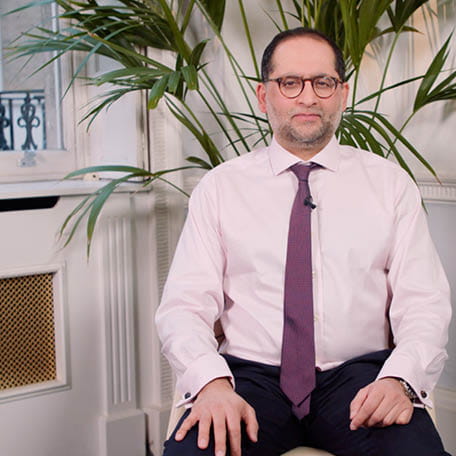- Market conditions remained challenging in Q2 after tumultuous start to 2022
- Relative performance was driven as much by stocks not held in the portfolio as those we held; overweight in mid-caps was a significant headwind
- Sharp corrections in share prices in response to the weaker economic prospects has created opportunities to buy stocks at extremely attractive valuations
Investors continued to face challenging conditions in Q2 after a tumultuous start to 2022. UK stocks drifted down over the quarter as inflation continued to rise, reaching a 40-year peak of 9.1% in June, driven by a combination of supply chain issues, labour shortages and high energy and other commodity prices afflicting the global economy. The key investor issues were when inflation and monetary tightening would peak: central banks in Europe and in North America still appeared to be behind the inflationary curve, despite liquidity being withdrawn and interest rates rising. Ironically, good economic news was seen as bad for markets as that would extend the interest rate cycle, whereas bad news would shorten it.
In the UK, consumer confidence was depressed in an environment of negative real wage growth. The economy contracted by 0.1% in Q2 after having risen by 0.7% in Q1, underlining the threat of recession. Movement in the bond yields curve reflected the growing likelihood of a recession. UK equities’ relative performance was still better than that of the US though, thanks largely to their overweight exposure to the energy and mining sectors.
Strong cost pressures, the general weakening economic environment and the broad labour market in the UK flexing its muscles for the first time in decades started to impact corporate profitability, although we expect to see companies feeling the greatest pain later this year and into 2023. Companies will need to increase productivity, which is likely to result in higher unemployment at some point with the silver lining being the reigning in of entrenched inflation expectations.
The share prices of cyclicals, particularly consumers stocks, were under pressure, with the medium sized companies in the FTSE 250 Index underperforming FTSE100 companies by 17% in the first half of the year. Higher growth companies were also significantly derated, reflecting the negative impact on valuation from higher interest rates.
Portfolio update
In a volatile and polarising second quarter for the market, relative performance was driven as much by stocks not held in the portfolio as those that were. Not holding British American Tobacco and BP impeded performance, for example, as did our underweight in GlaxoSmithKline. Shares in all these names held up well.
In general, the Fund’s overweight in mid-caps was a significant headwind. Ascential was the largest detractor despite the positive incremental news of a strategic review of its three excellent high-quality businesses to crystalise value for shareholders. The cost of living crisis weighed on consumer stocks with very low valuations providing no assistance to their share prices. Reassuring trading statements were also not enough to lend support to RS Group and Ashtead.
easyJet also struggled over the period in which flight cancellations, many of which outside its control, weighed on the share price given the compensation costs and brand impairment. The Fund’s overweight in mid-caps and underweight tobacco were also headwinds.
Against this softer economic background, we continued to increase weightings in some of the more defensive stocks such as Rentokil, Barrick Gold and Tesco. We also took the opportunity to increase exposure to some of the more cyclical businesses that also exhibit structural growth such as Ashtead, Diploma, Genuit and Hays.
Diploma is a value-added distribution business with strong margins and good growth potential, largely driven by structural factors. Cash generation is excellent and there are opportunities to reinvest FCF into bolt-on acquisitions, where returns are attractive.
Rentokil is a high return business with good revenue visibility and has excellent market positions. The recent announcement to merge with Terminix provides compelling synergies largely driven by better route density. Earnings should grow strongly over the next few years.
Serco and QinetiQ performed strongly as investors reappraised the growth outlook for the defence industry and the societal benefits that strategic defence provides around the world. Exposure was trimmed following share price strength.
Outlook
The global economy faces severe challenges. The US economy – the world’s largest – has stalled, inflation there has risen substantially and consumer indebtedness is at record levels. The war in Ukraine continues relentlessly, threatening to impact supplies of several essential commodities; and in China, the Covid pandemic has caused a series of damaging lockdowns, many mortgages are going unpaid because of developers’ failures to deliver on new homes and geopolitical tensions are growing over Taiwan. Domestic politics is also causing uncertainty, with US mid-term, UK prime minister and Italian general elections due later this year.
The UK is impacted by these global woes given its extensive international trade. It also has sharply rising inflation and the growing prospect of its own recession to address as it joins the broader trend of tightening monetary policy.
However, investors have become more realistic than they were at the beginning of the year about the economic and geopolitical risks facing markets. Arguably, they have become too negative, creating potential for positive surprises. Share prices have reacted so savagely to the weaker economic prospects that we believe this has created opportunities to buy stocks at extremely attractive valuations. We are predominantly invested in businesses that are strongly cash generative, have very solid balance sheets and are strategically well positioned leaders in their industries, thereby underpinning the earnings profile of the portfolio.
Although UK equities have fared relatively well this year compared with those in other regions, they are still valued favourably after years of being out of favour after Brexit. The economic environment might be creating headwinds for equities generally but the ‘old economy’ stocks dominating the UK market are, in fact, relatively well placed. The FTSE 100 index is dominated by banks, international energy companies and miners. Once seen as the UK market’s Achilles heel, these stocks are now its virtue.
It is also interesting how so many Black Swans in the last couple of years have accelerated many companies’ strategic progress, creating exciting opportunities. Some of the structural growth companies that have some cyclicality stand out in valuation terms – 4imprint, which saw profit upgrades of over 25% in May, is back to its 2015 valuation. Dunelm is back in Enterprise Valuation terms to where it was trading in 2013. Ashtead, Hays and RS Group are back to valuations not seen for almost 10 years. Some of the valuations are truly perplexing but therein lies the big opportunity.
The UK is one of many economies around the world that are in a late cycle, suggesting that economic growth will slow down but hopefully remain positive. We are cautiously optimistic that market conditions could get better towards the end of this year and into 2023, when investors might look out to an environment with lower inflation, the prospect of interest rate cuts rather than increases; and where pressure on consumer might be relieved to some extent. Equities’ valuations are attractive, so this all adds up to a slightly healthier outlook than a few months ago.








